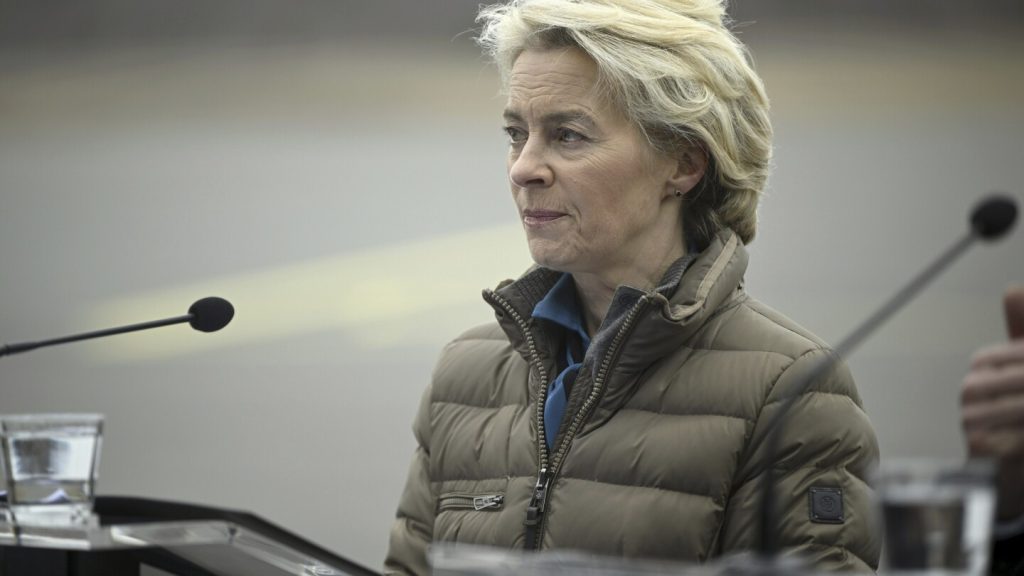Finnish Government took a drastic step by closing its border crossings with Russia due to a surge in migrants, which is believed to be orchestrated by Moscow. The European Union’s executive branch, led by Ursula von der Leyen, considers this a matter of security for the entire 27-member bloc. Von der Leyen visited the border and expressed concerns about Russian President Putin using migrants to test defenses and destabilize the EU. The closure of eight out of nine checkpoints with Russia was extended indefinitely, with only one dedicated to rail travel remaining open for cargo trains.
The decision to close the border points with Russia was made due to a perceived high risk of organized migration orchestrated by Moscow. Finland shares a 1,340-kilometer land border with Russia, mainly running through dense forests in the south and rugged landscapes in the Arctic north. The closure is seen as a security measure not just for Finland but for the entire EU. Von der Leyen emphasized the need for solidarity and unity in addressing security challenges, especially in the face of external threats. The visit to the border with Finnish Prime Minister Petteri Orpo highlighted the importance of coordination and collaboration within the EU.
During the visit to the border in Lappeenranta, concerns were raised about the warmer weather increasing the risk of illegal migration attempts outside official border crossing points. The majority of migrants coming through this route are from the Middle East and Africa, seeking asylum in Finland. The country, with a population of 5.6 million, joined NATO in April 2023, following Sweden’s decision to also become a member. This shift in security alliances is a response to the changing geopolitical landscape in Europe, particularly after Russia’s invasion of Ukraine. Von der Leyen’s focus on security aligns with the conservative European People’s Party bloc’s theme ahead of the European Parliament elections in June.
The decision to close the border points with Russia reflects Finland’s commitment to safeguarding its security and borders, especially in the face of external threats. This move is part of a broader trend in Europe towards strengthening defense and security cooperation, particularly in response to Russian aggression. Von der Leyen’s visit to the border underscored the importance of EU solidarity and collective action in addressing security challenges. As the EU prepares for upcoming elections, security remains a key issue for policymakers and citizens alike, shaping the future direction of the bloc’s security policies and partnerships. The closure of border crossings with Russia serves as a reminder of the complex security dynamics at play in Europe and the need for coordinated responses to protect the EU’s borders and interests.


